During the Straits Cup basketball tournament in Miaoli last September, reigning local champions Taiwan Beer (台灣啤酒籃球隊) were in the process of losing to China's Jiangsu Nangang Dragons when one of the Chinese players elbowed his Taiwan Beer opponent in the face. Two days later, Taiwan Beer's management ignored an apology from the Dragons and removed its team from the competition. Its players, the team said, were afraid of their Chinese opponents.
It seems a little rich then, to say the least, that a new documentary made about the Taiwan Beer basketball team is called Attitude. This, after all, is the team that wimped out of a tournament while the documentary was in production. So what does "attitude" mean? Sportsmanship and professionalism? Or self-absorbed preening?
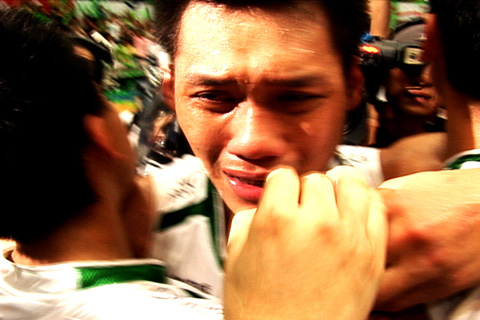
PHOTO COURTESY OF ZEUS INTERNATIONAL PRODUCTION
Ostensibly, Attitude - which was produced and financed by basketball player-turned-entertainer Chen Jien-chow (陳建州), better known as "Blackie" (黑人), who is also the team's PR director - is about dreams, friendship and refusing to give up, and its tone is exhaustingly positive. It begins with Blackie reminiscing about Taiwan Beer's recent past and how it rose from being a team that nearly fell apart in 2003 to a second place finish two seasons later. Thanks to unimaginative camera work and editing, the first 20 minutes feel more like a boring speech than a movie.
Things take a lachrymose turn when a junior high school teacher and Taiwan Beer fan surnamed Lin appears. Lin is terminally ill with cancer but is still optimistic and upbeat about life, and his last words, spoken in front of the camera, provide the film's only genuine emotional moment. After Lin dies and Blackie attends his funeral, the tearjerker subplot continues with an episode about basketball star Sam Ho's (何守正) close relationship with his late father and his mother, who he visits in the hospital after practice.
Subsequent chapters ensure that there is no shortage of humor and drama, as basketball fans are wooed with behind-the-scenes glimpses of the celebrity athletes. Viewers see Lin Chih-jeh (林志傑), the SBL's most valuable player, threaten the director and order him to turn off the camera. There's also plenty of brotherly love: players kissing each other on a bus, and horseplay that involves pulling each other's clothes off after practice. Not surprisingly, things come to an end with the team's victory in the 2007 SBL finals, which conveniently (for the film's sake) occurred before its craven exit from the Straits Cup later in the year.
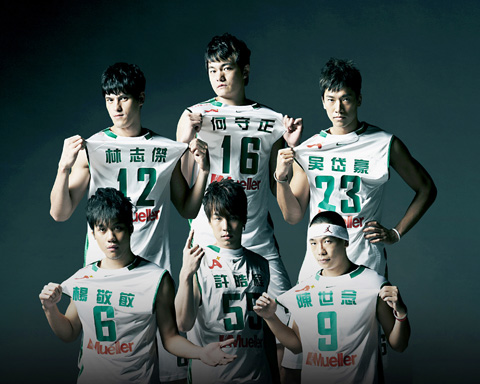
PHOTO COURTESY OF ZEUS INTERNATIONAL PRODUCTION
There is nothing wrong with making a film that seeks to inspire people and encourages them to see the bright and sunny side of things. But it's troubling when a film seems like an extended publicity vehicle that aims to advertise SBL stars much in the same way as the movie Stars (星光傳奇) sought to enhance the celebrity of pop idol contestants in the "talent" show One Million Star (超級星光大道). To be fair, Attitude can at times be reasonably entertaining. But the real never-give-up spirit on display here has nothing to do with sports: it's the moxie that Blackie has displayed by risking more than NT$5 million of his own money on a film that, if it succeeds at the box office, will make himself and his teammates more famous.
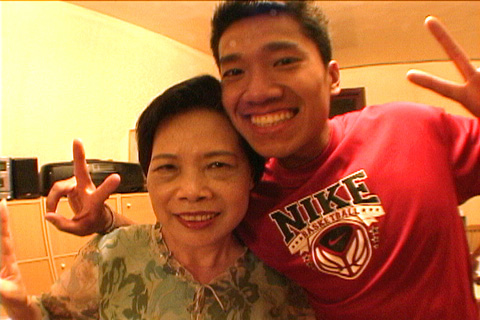
PHOTO COURTESY OF ZEUS INTERNATIONAL PRODUCTION
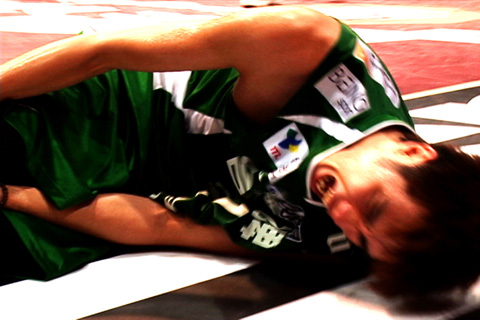
PHOTO COURTESY OF ZEUS INTERNATIONAL PRODUCTION
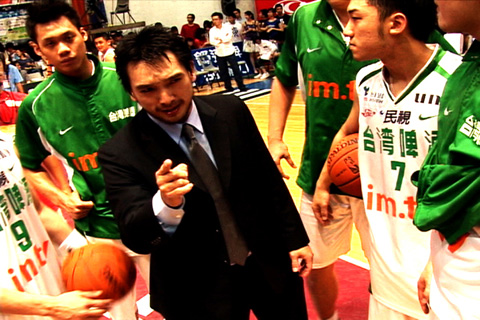
PHOTO COURTESY OF ZEUS INTERNATIONAL PRODUCTION

April 28 to May 4 During the Japanese colonial era, a city’s “first” high school typically served Japanese students, while Taiwanese attended the “second” high school. Only in Taichung was this reversed. That’s because when Taichung First High School opened its doors on May 1, 1915 to serve Taiwanese students who were previously barred from secondary education, it was the only high school in town. Former principal Hideo Azukisawa threatened to quit when the government in 1922 attempted to transfer the “first” designation to a new local high school for Japanese students, leading to this unusual situation. Prior to the Taichung First

When the South Vietnamese capital of Saigon fell to the North Vietnamese forces 50 years ago this week, it prompted a mass exodus of some 2 million people — hundreds of thousands fleeing perilously on small boats across open water to escape the communist regime. Many ultimately settled in Southern California’s Orange County in an area now known as “Little Saigon,” not far from Marine Corps Base Camp Pendleton, where the first refugees were airlifted upon reaching the US. The diaspora now also has significant populations in Virginia, Texas and Washington state, as well as in countries including France and Australia.

On April 17, Chinese Nationalist Party (KMT) Chairman Eric Chu (朱立倫) launched a bold campaign to revive and revitalize the KMT base by calling for an impromptu rally at the Taipei prosecutor’s offices to protest recent arrests of KMT recall campaigners over allegations of forgery and fraud involving signatures of dead voters. The protest had no time to apply for permits and was illegal, but that played into the sense of opposition grievance at alleged weaponization of the judiciary by the Democratic Progressive Party (DPP) to “annihilate” the opposition parties. Blamed for faltering recall campaigns and faced with a KMT chair

Article 2 of the Additional Articles of the Constitution of the Republic of China (中華民國憲法增修條文) stipulates that upon a vote of no confidence in the premier, the president can dissolve the legislature within 10 days. If the legislature is dissolved, a new legislative election must be held within 60 days, and the legislators’ terms will then be reckoned from that election. Two weeks ago Taipei Mayor Chiang Wan-an (蔣萬安) of the Chinese Nationalist Party (KMT) proposed that the legislature hold a vote of no confidence in the premier and dare the president to dissolve the legislature. The legislature is currently controlled